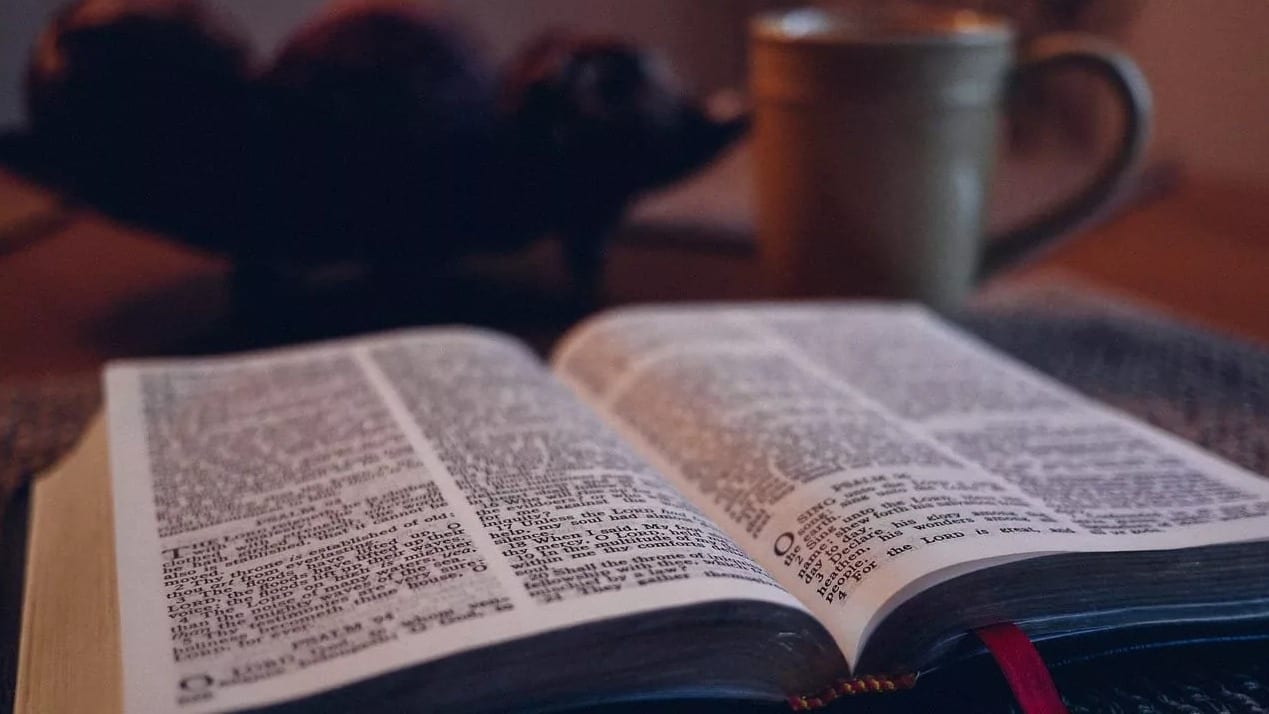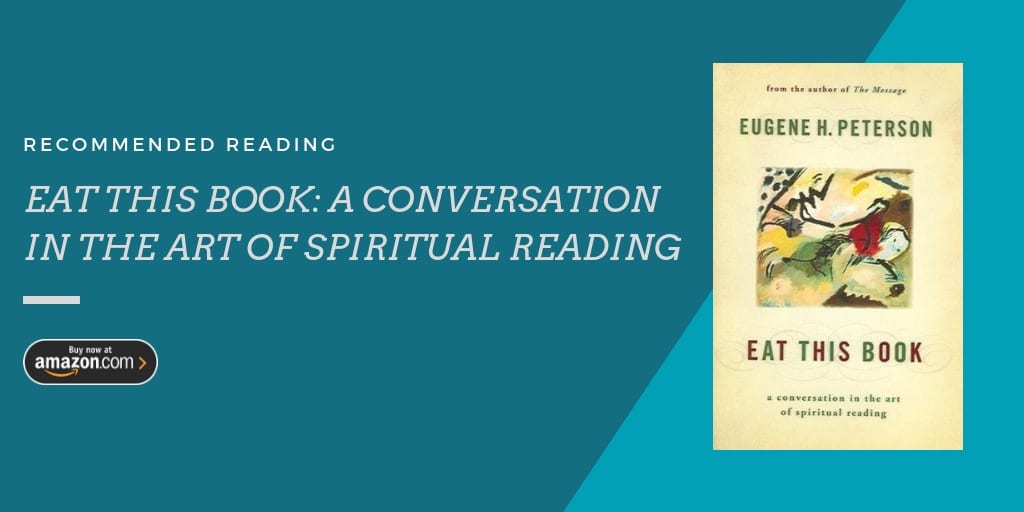The Book of Psalms gives us some of the most beautiful poetry ever written. It’s part prayer, part song, and one-hundred percent raw human emotion. In it we see David (and others) expressing a very New Testament heart of worship during Old Testament times.
When David is called a man after God’s own heart, it’s here where we see how much his heart reflected his love for the Lord.
But not all Psalms are equal. While there are some common threads, there are many differences that can help us understand how we can connect with these writings. Studying the Book of Psalms can provide incredible direction for how to deal with a range of emotions and experiences.
Check out this clip from my recent sermon (queued to start at the right spot, up through about the 8:30 mark). This covers some of what I’m exploring in this post.
As we continue this series on “lament: a perspective on sadness in the bible,” the first step here is to get a better understanding of how to read the Book of Psalms. That starts with recognizing the differences between the types of Psalms and then applying some basic principles for interpreting them.
Types of Psalms
The Book of Psalms contains 150 writings. Most are attributed to King David, and several are written by people who continued the practice after him. They’re written largely as prayer-songs. And just like when you listen to music on the radio today, they cover a wide range of experiences.
The types of Psalms are broken down into categories as follows:
- 60+ Laments
- 16 Thanksgiving Psalms
- 16 Hymns of Praise
- 28 Psalms of Celebration and Affirmation (royal, enthronement, Zion)
- 8 Wisdom Psalms
- 10 Songs of Trust
The thing that strikes me about these numbers is the balance. Sixty Psalms of Lament accounts for over 40% of the prayer-songs recorded in the Book of Psalms. No other group comes close. Lament was obviously a big part of David’s experience.
Compare this to what we hear on the radio today.
Sure, there are some sad songs. Even songs that we’re meant to be laments, but became one later on. I think of Steven Curtis Chapman’s “Cinderella,” taking on a whole different meaning when one of his young daughters died.
But generally speaking, most of the songs on Christian radio stations reflect the praise and joy of the Lord. They’re about celebrating and praising His goodness.
I love God’s goodness! But we’re kidding ourselves if we say that our lives are all that blessed. I don’t know about you, but experiencing trials is nearly a daily thing for me. It’s usually little stuff, but sometimes it can just get big-nasty-ugly. And I know we all go through it. So why don’t we hear more laments on the radio?
I know some are out there. I would just love to be more realistic about what we all go through on a regular basis.
Individual and Corporate Psalms
As we look at the Book of Psalms, we also see them fall into two other classifications, individual and corporate.
The individual Psalms are the more personal ones. They come from the times when David would cry out to God about what’s happening in his life. They are his prayers to God for help (and for praising Him). These provide a great model and structure for our own personal worship. We can learn much about how to talk to God about everything we’re going through.
I love to see how David talked to God. He was honest and raw. He laid himself out there. Beautiful. Some individual laments include 3, 22, 31, 39, 42, 57, 71, 88, 120, 139, and 142.
The corporate Psalms are the ones written more on behalf of the nation of Israel as a whole (or other specific groups). They give us a great model for how we can do church together. They show us how we can pray and worship through things we may all be dealing with. Think about a tough time we’ve dealt with as a nation or local community, and then read Psalm 80:4-7 (NASB):
O Lord God of hosts,
How long will You be angry with the prayer of Your people?
You have fed them with the bread of tears,
And You have made them to drink tears in large measure.
You make us an object of contention to our neighbors,
And our enemies laugh among themselves.
O God of hosts, restore us
And cause Your face to shine upon us, and we will be saved.
Using these kinds of Psalms can provide our churches with a model for corporate worship and prayer, especially through difficult times. Some corporate laments include 12, 44, 80, 88, 94, and 137.
Perspective On Reading the Book of Psalms
When reading the Book of Psalms, there are some things you should consider that will help you get more out of them. The big thing we need to understand is that this is ancient Hebrew poetry. Each of those words shifts how we understand and relate to this text.
Ancient is an important perspective in this because the historical distance impacts the experience. Ancient Israelites went through things like the Exodus where they wandered in the desert for an entire generation (and witnessed incredible miracles). And at the time of David, they constantly stared in the face of war (in their own land) and invasion from their enemies, something modern Americans simply cannot relate to. The time and culture were very different than ours, and we need to strive to better understand those historical cultural differences.
Being Hebrew lends a very distinct perspective too. Their entire identity was wrapped up in the call God gave to Abraham and their journey with Moses. They were the called-out ones by the One True God. Their entire purpose in the world was different than every other people group on the planet.
And it’s poetry. You don’t read poetry like any other text. For example, especially in ancient Hebrew poetry, things like parallelism are common forms we encounter. We see things repeated, sometimes in slightly different ways, in order to bring emphasis to what’s being said. Recognizing poetic forms like this can help us see where the heart of the writer is when expressing the prayer-song.
For Best Results…
One of the best things we can do when reading the Psalms is to read them from different perspectives. I suggest reading them in multiple translations in order to get the full flavor for what they are trying to communicate. I like to read it in a couple of word-for-word translations (like ESV and NASB or NKJV), a couple of thought-for-thought translations (like NIV and NLT), and then a paraphrase (like MSG). Then go back and read them through all of the translations again (maybe a few times).
This approach will give you richness in getting to the heart of the writer.
Here’s a challenge for you. Pick one Psalm to study this week. Read it through in five (or more) translations, then go back and repeat that at least two more times. Maybe do this process over a few days so that you have time to soak it all in, and then go back to reading through it all again the next day.
Then, pick one or two words (or a short phrase) that stand out to you from your reading, and do some word studies on those words. What do they really mean, and how are they translated differently between the different versions you’ve been reading?
The Book of Psalms can touch you deeply and change how you pray and worship. And that’s exactly how I learned to lament well.
Note: Read the full series at lament: a perspective on sadness in the bible






0 Comments